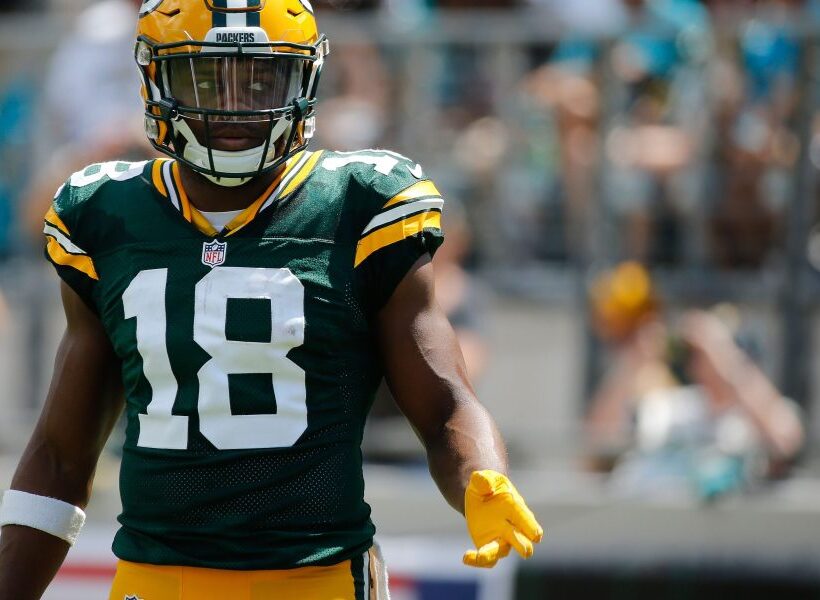Coming into the offseason, the Green Bay Packers have a good amount of money to spend in free agency. According to Spotrac, Green Bay ranks below average with amount of money to spend, as $32,299,312, putting them with the 17th-most space.
While this number doesn’t even come close to that of list-leading Indianapolis (over $122 million), it still puts them into a good situation going into 2019 with a revamped coaching staff.
Here are a few ways that the team can shape its financial outlook for 2019 and beyond.
Let fan-favorite but big-money players walk
While 2018 was not a good season to be the final season in Green and Gold for some players, the likes of Randall Cobb and Clay Matthews should be moved on from. Brian Gutekunst and company should understand that while the importance of these two players is important from a fan perspective, reuniting from a money perspective would not make sense, unless both would be willing to take far-below market value to return.
Cobb will price himself out of Green Bay’s budget by looking for a contract starting anywhere from $8-10 million annually, which is the money you give a receiver who is in his prime and widely considered in at least the top-30 in the league.
That is not Cobb, as most people can determine. Due to his injury history and his lack of production the past few years, Cobb is valued as a lower-end slot receiver, something that the Packers need to distance themselves from.
Concerning Matthews, his injury history, similar to Cobb’s, has not helped his chances in free agency. Looking at his potential AAV, Matthews would be looking for something similar to the extension that he signed with Green Bay, right around $10 million.
Paying Matthews would be more manageable if Nick Perry had not been signed to such an awful contract (more on this later), so that is a big-time limiting factor her for Matthews.
Restructure or cut other veterans
As previously mentioned, there are other veterans on this roster, like Perry, who are not free agents but would be smart to cut bait with now. Besides Perry, veterans like Jimmy Graham, Bryan Bulaga, Tramon Williams and maybe even Mike Daniels need to have their deals redone.
Out of those four, it would make the most sense to move on from both Perry and Graham now, dealing with the dead money, and restructuring Bulaga and Daniels. Williams could go either way, as his veteran presence has been a good locker room presence but if they decide to upgrade the safety position, which they should, then he does become expendable.
Perry’s role in this team was quite overshadowed with the emergence of Kyler Fackrell, among others. Couple his shrinking role with his figure of $11.1 million in dead money, and the team would be smart to move on now, as this would be the cheapest way to admit a mistake.
If they were to hold onto him for another season, his contract only grows worse, as his overall cap hit grows up to above $14 million. The nice thing is that even with the growing hit, the dead money does drop to $7.4 million in 2020 and $3.7 in 2021.
Graham’s contract structure is better as it goes on, which is good for a 30+ year old who played quite poor football in 2018. If letting go of him now, $7.3 million would be his dead money amount, while it drops to $3.6 million in 2020.
All of these dead money amounts all kick in if the player is released or cut, not traded away. That figure would be different depending on how much salary is received in return.
Bulaga, Daniels and Williams will combine for a cap hit of around $25 million, which is not all that bad for a group of players somewhat past their prime or completely past it (Williams). However, each deal could become reworked if some of the guaranteed money was converted into a roster or signing bonus, helping move money into different categories on the payroll and providing Gutekunst and co. with more leeway to spend in free agency.
Continue to usher in the youth
Green Bay has the league’s third youngest roster, tied with Cleveland at 25.15 average age. This is a sign of what is valued by both the league and the team, as younger talent is commonly more controllable and costs less.
Veterans like Muhammad Wilkerson, Lance Kendricks, Mercedes Lewis and Davon House should all be thanked for their time in Titletown but not told the password to get back in. Their play did not justify their contract, even if their deals were towards the lower part of the money spectrum.
Wilkerson is the only person listed here that had a deal worth more than $2.1 million, so the others were brought in on minimum contracts, adding value to the team while not paying through the nose for it.
This team has the tools in place to get back to where they know they belong in 2019, but it is just the actual maneuvaring of finances that will make or break the team refresh, not rebuild.
As always, please leave any and all comments, questions or concerns below in the comment section!
Mike Johrendt has been an avid fan of the Packers ever since he can remember. He is now a writer at PackersTalk and you can follow him on Twitter at @MJohrendt23
뿓뿓뿓


2 responses to “How Green Bay Can Improve Its 2019 Financial Outlook”
Wilkerson should be brought back. He’s going to be better than a lower draft choice, so higher draft slots can be used on other positions.
I agree. Mo was just getting going when he got hurt. I’d like to see what he can do over a series of games. The others? Meh. Perhaps if they were cheap enough.